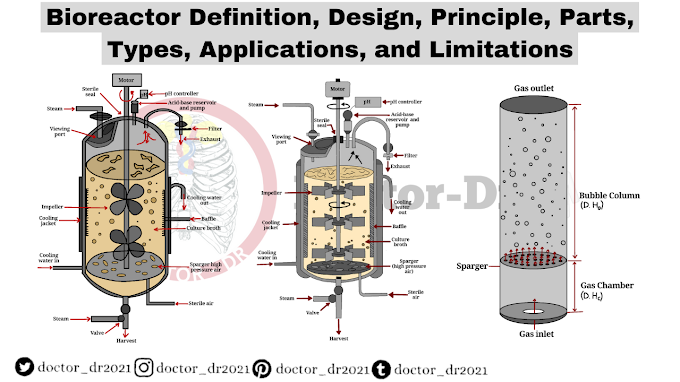Mental Illnesses and Their Causes
A mental illness is any disorder of the mind that affects an individual's emotions, thoughts, or personality. Changes in speech and trouble remembering things are two indicators of mental illness. Mental illness might also be indicated by a completely different perspective or attitude to things. A person who laughs in reaction to an extremely tragic situation, for example, may be exhibiting signs of mental illness. A symptom is an indication of a medical or mental disease.
People used to believe that mental illness could be caught much like a cold or virus. The majority of individuals avoided neighbours who had mental health issues. Scientists have discovered that mental disease cannot be transferred from person to person as a result of their research into human behaviour. Scientists have identified two types of mental disease. Organic and functional diseases are the two types of disorders.
Experts in psychology and psychiatry have conducted the majority of study on mental illnesses. The medical study, treatment, and prevention of mental illnesses is known as psychiatry [sih KY uh tree]. Psychiatrists are medical physicians who specialise in psychiatry [sih KY OH trists]. They're not the same as psychologists, who have a master's degree in psychology but aren't medical physicians.
Organic Disorders and Their Causes
Organic diseases are mental illnesses that are primarily caused by physical factors. Physical defects or chemical imbalances are frequently the cause of organic diseases.
When your body generates too much or too little of a chemical, it creates a chemical imbalance. A chemical imbalance in the body can have an impact on your usual thoughts, feelings, attitudes, and behaviour. It's possible that you'll get a mental illness as a result. A proclivity for developing a chemical imbalance is frequently hereditary. However, in many situations, a person's environment plays a significant role in the development of mental disease.
Chemicals that assist the brain deliver information are linked to a variety of mental illnesses. Nerve cells are responsible for the production of these substances. Nerve cells transmit messages to other nerve cells all the time. The chemistry of the brain is extremely intricate. When something goes wrong with this process, it can have a significant impact on a person's mood. High fevers linked to other diseases, as well as drug or alcohol misuse, may be to blame. The mental shift that occurs as a result of the imbalance might be irreversible. Occasionally. It lasts until the chemical imbalance is resolved or under control.
Changes in speech or thinking might be indicators of physical sickness rather than mental disorder. When a person becomes sad for no apparent cause or exhibits a rapid change in personality, a physical examination is essential. If a physical disease is causing troubling mental symptoms, the medical illness must be addressed first. A brain tumour, for example, might induce changes in personality, comprehension, and speech. The mental illness will not be alleviated unless the tumour is removed.
Functional Disorders and Their Causes
Functional diseases are mental illnesses that are not caused by physical factors. They are emotional issues that arise as a result of a person's surroundings. Two environmental variables that might contribute to mental illnesses include traumatic childhood experiences and excessive stress.
Many experts feel that your present mental condition is influenced in part by your upbringing. Your personality is influenced by everything you heard, saw, and felt as a youngster. Mental illnesses can sometimes be caused by traumatic childhood situations.
Sigmund Freud, an Austrian psychiatrist, felt that early events had the greatest impact on a person's psyche. As you recall from Chapter 4, Children have specific conflicts or issues to settle at each stage of development, according to Freud. A healthy personality cannot completely develop unless these issues are handled. People are more likely to acquire mental illnesses under such situations, according to Freud.
Family is the most common source of conflict in childhood. Whether it's friendships or school, there's something for everyone. These disputes might develop to mental illnesses if they are really unpleasant or persist for a long time. A parent's illness or death, or the death of a sibling or sister, can be extremely upsetting. Anyone who has experienced a lack of affection from a parent has experienced emotional distress. Other types of disputes might arise as a result of a parent's divorce or abandonment. Some children are abused or neglected. As a result of the emotional trauma of being mistreated, the kid is more likely to develop a mental disorder. Mental illnesses can develop as a result of extreme stress. Problems in the family, at work, or with friends are just a few examples of life events that cause stress.
Anxiety, exhaustion, and off-balance are all symptoms of mental stress. The majority of individuals can handle a certain level of stress. However, there are occasions when a person's stress level is so high that they are unable to operate properly. Severe, long-term stress can lead to mental problems.
When someone goes through a traumatic event, stress can come on suddenly and with a lot of force. A violent incident that harms a person's mental health is known as a mental trauma [TROW muh]. Experiencing a relative's death in a vehicle accident, for example, or witnessing the atrocities of battle may create mental trauma. As a result of this stress, a person's chances of being mentally ill may increase.
Review of the Lesson
The causes of mental disorders have been studied extensively. Many mental diseases are biological in nature, resulting primarily from physical abnormalities or chemical imbalances. Environmental variables such as stress or unpleasant childhood events can cause functional disorders, which are emotional issues. A mix of hereditary chemical imbalances and environmental variables can cause mental disease.



%20Types,%20Functions,%20Tropism,%20Crosstalk%20&%20Agricultural%20Applications.webp)



